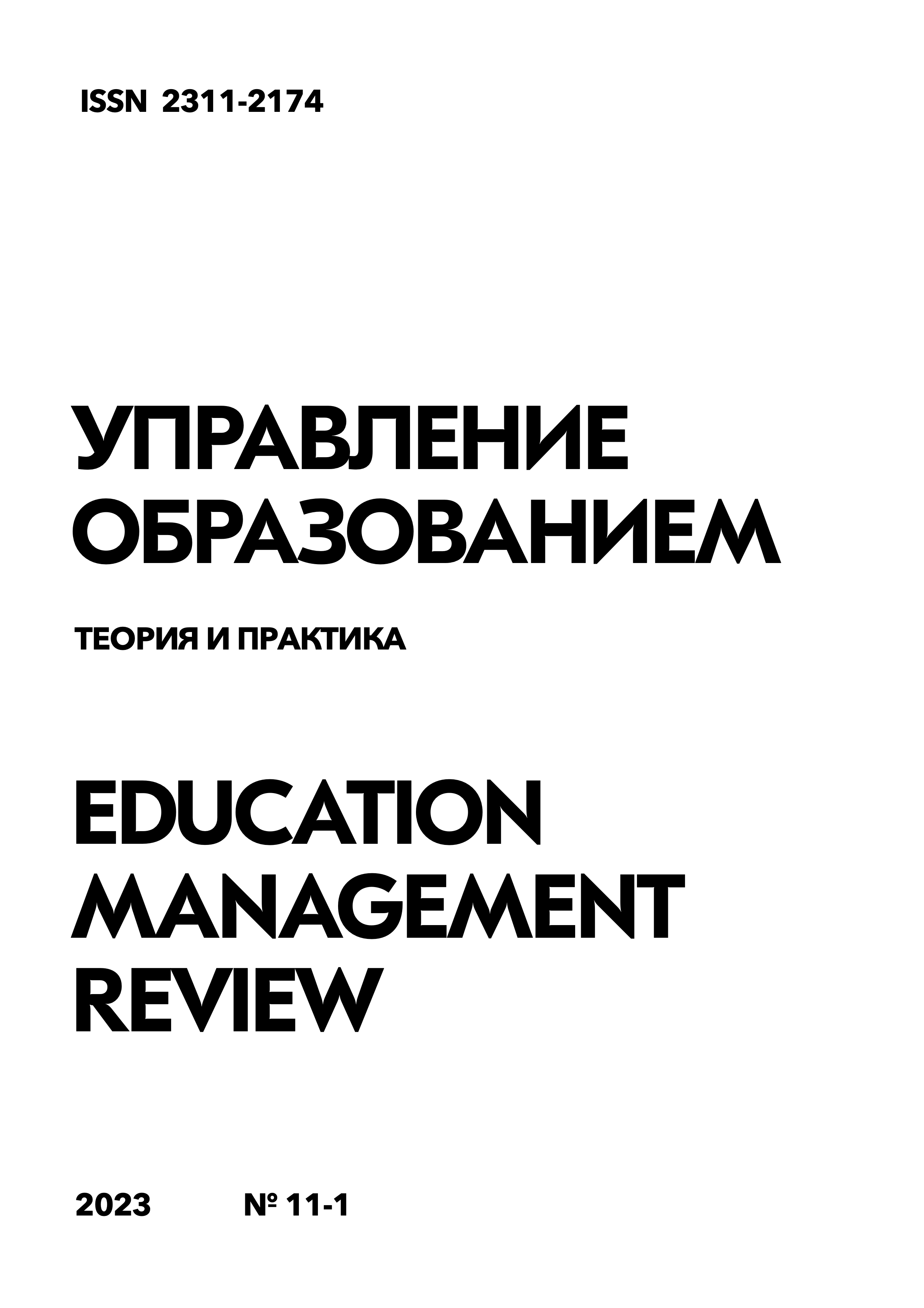Cognitive architectures in educational systems of technological universities
DOI:
https://doi.org/10.25726/f1913-1675-3585-yKeywords:
cognitive architectures, learning systems, technological universities, educational efficiency, IT disciplines, engineering education, individualization of learningAbstract
Introduction: In an era of accelerated development of information technology and an ever-increasing demand for highly qualified specialists in the field of technology, the role of educational institutions, especially universities of technology, becomes critically important. Particular attention is paid to the development and implementation of cognitive architectures in learning systems. This approach opens up new prospects for increasing the effectiveness of teaching, adapting curricula to the individual characteristics of students and accelerating the process of their professional development. Materials and methods: The analysis was carried out based on data from 15 leading technological universities in Russia, where cognitive learning systems were introduced by 2022. Methods of qualitative and quantitative analysis were used, including surveys of teachers and students, analysis of curricula and results of examination sessions. Results: The study showed that the introduction of cognitive architectures into the teaching systems of technological universities helps to increase student achievement by 18-22%. The greatest improvement in the quality of education is observed in the field of engineering and IT disciplines. More than 60% of teachers noted an increase in student motivation to study complex technical subjects, and 70% of students confirmed an improvement in their understanding of educational material. As the research results show, the educational process at Russian technological universities has enormous potential for improvement with the help of cognitive architectures. Although the integration and adoption of these technologies is not without complications, their benefits make them a promising and urgent commitment for the development of higher education in Russia.
References
Добрицына И.А., Коптева Т.В. Нейронаука как методологическая трансгрессия в пространство архитектурного мышления // Архитектура и Строительство России. Новейшая архитектура. 2021. №1 (237). С. 10-15.
Ефимова Е.М., Ефимов Д.О. Современные проблемы проектирования магистерских сетевых образовательных программ // Актуальные вопросы современной науки и практики: материалы Международной научно-практической конференции. Уфа. 2021. С. 63-69.
Зеер Э.Ф., Третьякова B.C., Зиннатова М.В. Инновационная модель социально-профессионального развития личности обучающегося // Образование и наука. 2020. Т. 22, № 3. С. 83-115.
Ильевская М.М. Теоретическое осмысление российской архитектуры конца XX-XXI вв.: опыт МАРХИ // Architecture and Modern Information Technologies. 2022. No1(58). С. 272-281. URL: https://marhi.ru/AMIT/2022/1kvart22/PDF/18_ilevskaja.pdf - DOI: 10.24412/19984839-2022-1-272-281
Медведев В.А. Проектное мышление: основные признаки и этапы развития // Глобальная конференция по технологиям в образовании EdCRUNCH Ural: новые образовательные технологии в вузе: сб. ст. участников конф. Екатеринбург: ИТОО УрФУ, 2019. С. 102-107.
Миронова И.А. Модель формирования индивидуального творческого стиля деятельности у будущих архитекторов и градостроителей в вузе: автореф. дисс. канд.пед. наук., Орел. 2021. 24 с.
Гитман Е.К. О некоторых проблемах организации межвузовского сетевого взаимодействия // Высшее образование в России. 2017. № 5. С. 5-14.
Попова А.Ф., Жильцов М.Б. Адаптационная рациональность менеджера оздоровительно-образовательной организации: формирование, оценка эффективности: научный доклад. Челябинск: УралГУФК, 2019. 40 с.
Попова А.Ф. Менеджмент физкультурно-оздоровительной деятельности. Челябинск: УралГУФК, 2018. 304 с.
Саид М.А., Михалев О.А., Сорокин К.Н. Когнитивный подход к управлению радиочастотным спектром сети радиосвязи транспортных систем // Материалы международной научно-практической конференции «Транспорт России: проблемы и перспективы». СПб, 2016. Т. 2. С. 100-115.
Сафар М.Я. Инверсия ценностей как основной показатель системных изменений культурного пространства // Большая Евразия: развитие, безопасность, сотрудничество. 2018. №2. С. 644-646.
Севостьянов Д.А. Инверсивные отношения в образовании: социально-философский анализ. Автореф. дисс. докт.филос. наук., Новосибирск, 2020. 38 с.
Сорокин К.Н., Гель В.Э., Никольский С.В., Шевченко А.А. Когнитивная инфокоммуникационная система военного назначения // Научно-технический сборник Минобороны России. 2017. № 1. С. 160-168.
Топчий И.В. Инверсионные процессы в архитектурном образовании // Ценности и смыслы. 2022. №2 (78). С. 79-97.
Топчий И.В. Теоретические основания педагогических коммуникаций в архитектурном образовании // Азимут научных исследований: педагогика и психология. 2021. Т. 10 №4(37), С. 216-221. DOI: 10.26140/anip-2021-1004-0052.




